Filter by

Comorbidity in Adhd a Neuropsychological Perspective
Comorbidity in ADHD: A Neuropsychological Perspective
- Edition
- -
- ISBN/ISSN
- 9789533078687
- Collation
- -
- Series Title
- -
- Call Number
- -
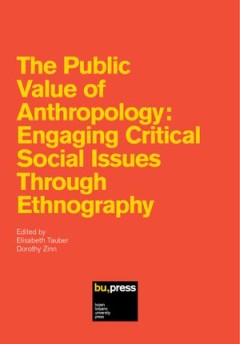
The Public Value of Anthropology
Accessible to non-specialists and researchers interested in ethnography, this volume offers an introduction into the uses of anthropology for engaging contemporary social issues. The editors’ essay surveys the development of anthropological research from its early exotic, non-Western focus to today’s debate over increasingly engaged approaches within a globalized society. The case studies u…
- Edition
- -
- ISBN/ISSN
- 9788860460769
- Collation
- -
- Series Title
- -
- Call Number
- -

Comorbid Conditions in Child and Adolescent Patients Diagnosed with Attention…
Attention deficit/hyperactivity disorder (ADHD) is one of the most common childhood psychiatric disorders. The worldwide prevalence of ADHD in children has been reported at 4-7%. Numerous population- and clinical-based studies have reported that more than half of cases of ADHD have at least one psychiatric comorbidity. The presence of psychiatric comorbidities complicates the diagnosis, treatme…
- Edition
- -
- ISBN/ISSN
- 9789535121664
- Collation
- -
- Series Title
- -
- Call Number
- -

Soziale Arbeit und die Soziale Frage
For a long time, the use of the term «Social Question» was referred to as being a phenomenon of the 19th century, related to the social changes taking place during that period. Today, however, the so-called Social Question is increasingly linked to current societal challenges, such as global migration, radical demographic change, or increased social divisions in both public and professional d…
- Edition
- -
- ISBN/ISSN
- 9783037771839
- Collation
- -
- Series Title
- -
- Call Number
- -
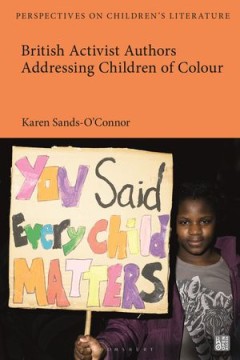
British Activist Authors Addressing Children of Colour
Exploring a history of activists writing for and about children of colour from abolition to Black Lives Matter, this open access book examines issues such as the space given to people of colour by white activists; the voice, agency and intersectionality in activist writing for young people; how writers used activism to expand definitions of Britishness for child readers; and how activism and wr…
- Edition
- -
- ISBN/ISSN
- 9781350196049
- Collation
- -
- Series Title
- -
- Call Number
- 300
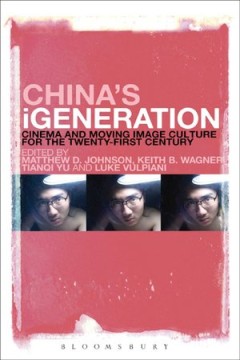
China's iGeneration:Cinema and Moving Image Culture for the Twenty-First Century
Collection of essays on twenty-first century Chinese cinema and moving image culture. This innovative collection of essays on twenty-first century Chinese cinema and moving image culture features contributions from an international community of scholars, critics, and practitioners. Taken together, their perspectives make a compelling case that the past decade has witnessed a radical transformat…
- Edition
- -
- ISBN/ISSN
- -
- Collation
- -
- Series Title
- -
- Call Number
- 300

The Anthem Companion to Auguste Comte
For most of the twentieth century, Auguste Comte, a controversial but highly influential nineteenth-century figure, and his vast treatises on positive philosophy, politics and religion were disregarded and largely ignored. More recently, however, Comte’s life and writings have been reexamined together with the project of social reform to which his intellectual labors were devoted, producing a…
- Edition
- -
- ISBN/ISSN
- 9780857281852
- Collation
- -
- Series Title
- -
- Call Number
- 300
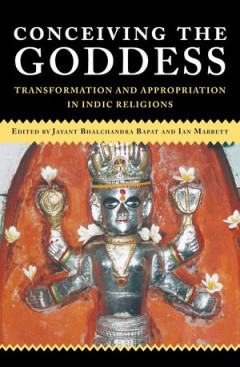
Conceiving the Goddess: Transformation and Appropriation in Indic Religions
Conceiving the Goddess is an exploration of goddess cults in South Asia that embodies research on South Asian goddesses in various disciplines. The theme running through all the contributions, with their multiple approaches and points of view, is the concept of appropriation, whereby one religious group adopts a religious belief or practice not formerly its own. What is the motivation behind th…
- Edition
- -
- ISBN/ISSN
- 9781925377309
- Collation
- -
- Series Title
- -
- Call Number
- -

The Anthem Companion to Pierre Bourdieu
The Anthem Companion to Pierre Bourdieu' provides an introduction to the French sociologist’s thought and an evaluation of the international significance of his work from a range of national perspectives. The contributions in the companion investigate the applicability of Bourdieu’s theories and concepts in diverse sociopolitical contexts and consider the ways they can be said to possess un…
- Edition
- -
- ISBN/ISSN
- 9781783085613
- Collation
- -
- Series Title
- -
- Call Number
- 300
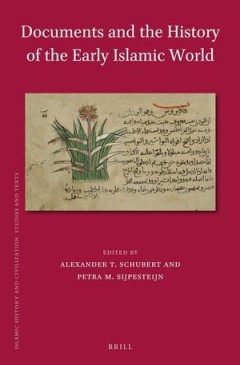
Documents and the History of the Early Islamic World
Historians have long lamented the lack of contemporary documentary sources for the Islamic middle ages and the inhibiting effect this has had on our understanding of this critically important period. Although the field is richly served by surviving evidence, much of it is hard to locate, difficult to access, and philologically intractable. Presenting a mixture of historical studies and new edit…
- Edition
- -
- ISBN/ISSN
- 9789004284340
- Collation
- -
- Series Title
- -
- Call Number
- -
 Computer Science, Information & General Works
Computer Science, Information & General Works  Philosophy & Psychology
Philosophy & Psychology  Religion
Religion  Social Sciences
Social Sciences  Language
Language  Pure Science
Pure Science  Applied Sciences
Applied Sciences  Art & Recreation
Art & Recreation  Literature
Literature  History & Geography
History & Geography